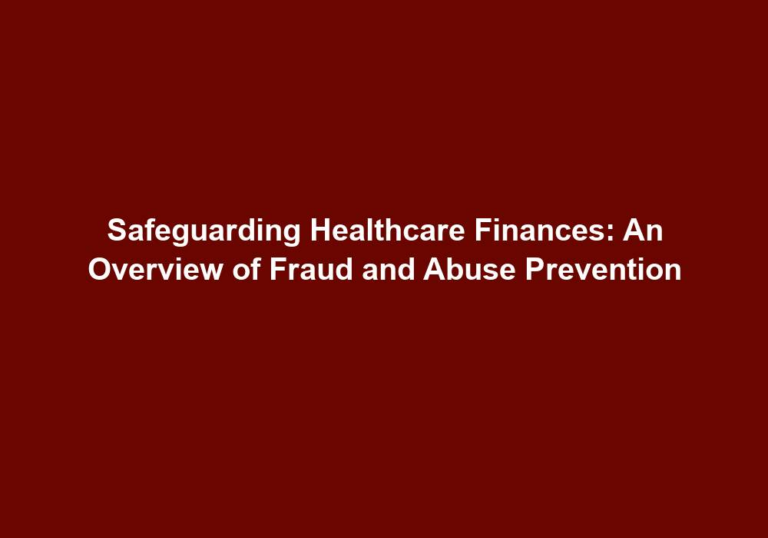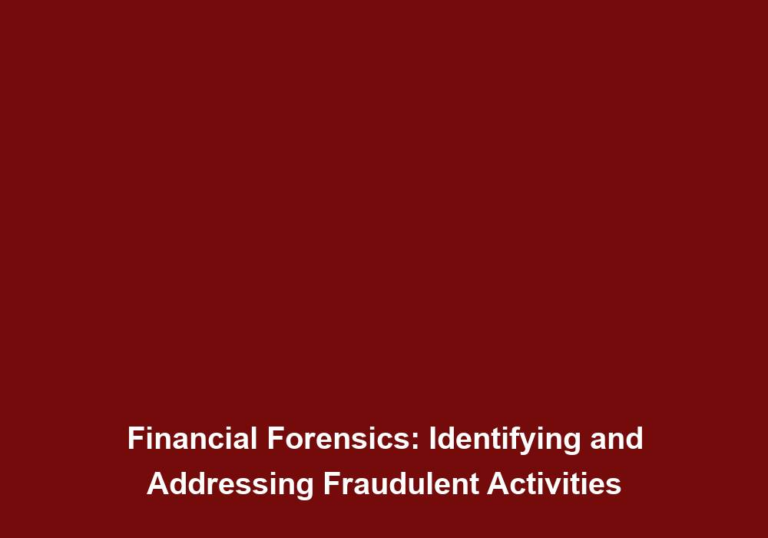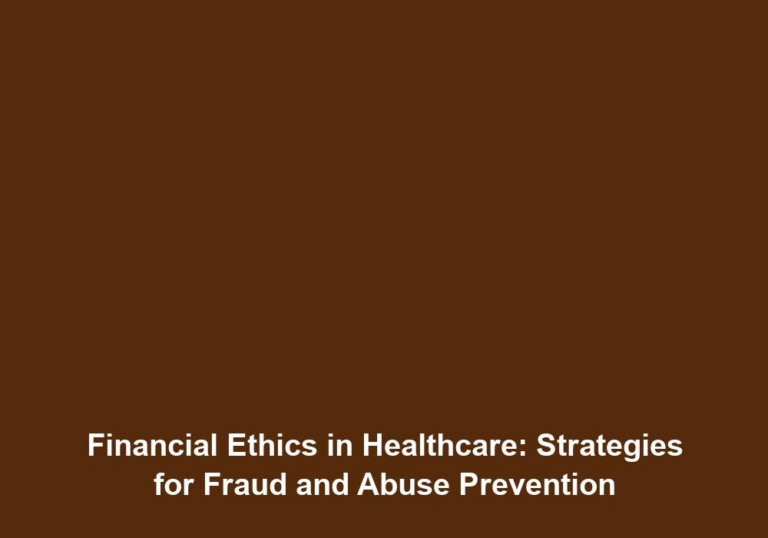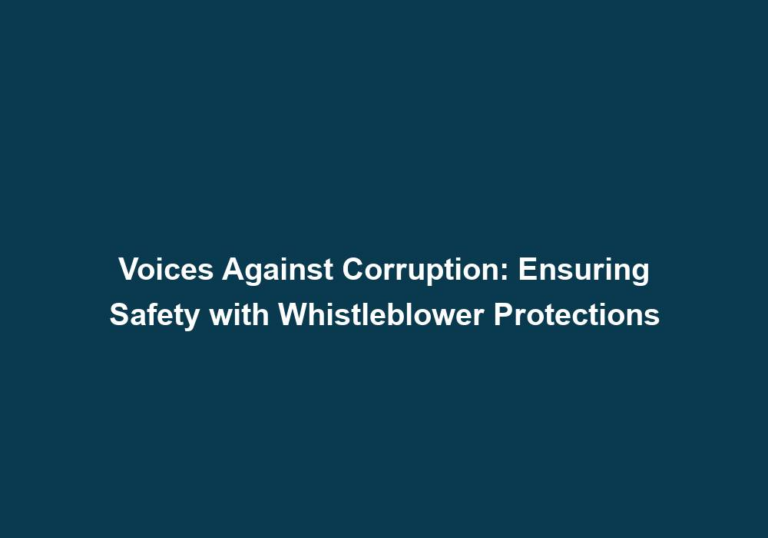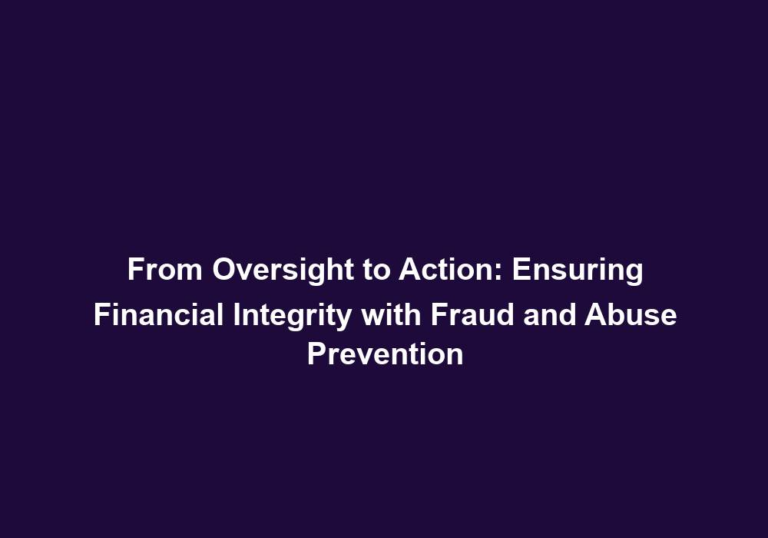Keeping Healthcare Honest: Recognizing and Responding to Fraudulent Activities
Healthcare is an essential aspect of society, providing millions of people with the necessary care for their well-being. It is of utmost importance that the healthcare industry operates with integrity and honesty to ensure that patients receive the services they need without falling victim to fraudulent activities. Recognizing and responding to these fraudulent activities is crucial in protecting patients and maintaining trust in the healthcare system.
Understanding Healthcare Fraud
Healthcare fraud encompasses any dishonest or illegal activity carried out by healthcare providers, suppliers, or individuals with the intention of obtaining unauthorized benefits or financial gain. It can manifest in various forms, including:
-
Billing Fraud: This type of fraud involves submitting false claims or inflating the cost of services and treatments provided to patients. By doing so, healthcare providers aim to receive excessive reimbursement from insurance companies or government healthcare programs. To combat this, it is essential to implement effective auditing systems and closely monitor billing practices.
-
Identity Theft: Criminals may engage in identity theft to fraudulently obtain healthcare services or make false claims. Personal information, such as social security numbers or insurance details, can be stolen and used to deceive healthcare providers. Implementing robust security measures and educating individuals about the importance of safeguarding their personal information can help prevent this type of fraud.
-
Unnecessary Procedures: Some healthcare providers may perform unnecessary tests, surgeries, or procedures to generate higher revenues. This not only compromises patient health and safety but also diverts resources away from genuine patient care. Implementing guidelines and protocols to ensure that procedures are medically necessary can help prevent this type of fraudulent activity.
-
Kickbacks and Referral Fraud: Inappropriate use of healthcare resources can occur when individuals or entities offer or receive kickbacks in exchange for patient referrals. These referrals may lead to unnecessary tests or treatments, ultimately benefiting the fraudsters. Establishing strict regulations and monitoring referral patterns can help detect and prevent this type of fraud.
-
Pharmacy Fraud: Pharmacy fraud encompasses various activities, such as prescription fraud, illegal distribution of medications, or pharmacy billing fraud. Implementing checks and balances within the pharmacy system, as well as conducting regular audits, can help identify and deter this type of fraudulent activity.
The Impact of Healthcare Fraud
Healthcare fraud not only affects individuals and patients directly but also has significant consequences for the overall healthcare system and society as a whole. Some of the impacts of fraudulent activities include:
-
Financial Loss: Healthcare fraud leads to substantial financial losses for insurance companies, government healthcare programs, and ultimately, taxpayers. These losses can result in increased healthcare costs, insurance premiums, and reduced access to necessary care for patients. Implementing effective fraud detection systems and increasing penalties for offenders can help mitigate these financial losses.
-
Compromised Patient Care: Fraudulent activities divert resources and attention away from genuine patient care, potentially reducing the quality and availability of healthcare services. Patients may be subjected to unnecessary procedures or denied essential treatments while fraudsters exploit the system. By strengthening regulations and promoting ethical practices within the healthcare industry, we can ensure that patients receive the care they truly need.
-
Eroded Trust: Healthcare fraud undermines public trust in the healthcare system, making patients skeptical and hesitant to seek medical care. The loss of trust can hinder effective doctor-patient relationships and prevent individuals from accessing the care they need. Implementing transparency measures and educating the public about healthcare fraud can help rebuild trust and restore confidence in the system.
-
Legal Consequences: Engaging in healthcare fraud is a serious offense that can result in criminal charges, hefty fines, loss of professional licenses, and imprisonment for the individuals involved. Legal action is necessary to deter fraudulent activities and protect the integrity of the healthcare system. Strict enforcement of laws and regulations, along with thorough investigations, can help ensure accountability and prevent future instances of fraud.
Recognizing Healthcare Fraud
Detecting and recognizing healthcare fraud can be challenging, as fraudulent activities are often carefully disguised. However, certain red flags and warning signs can help individuals identify potential fraud. Some key indicators to watch out for include:
-
Unusual Billing Patterns: Be vigilant for excessive billing, double billing, or charges for services not rendered. Unexplained increases in healthcare costs or unexpected bills can indicate fraudulent activities. Regularly reviewing medical bills and insurance statements can help identify discrepancies and raise suspicion.
-
Mismatched or Incomplete Documentation: Inaccurate or incomplete medical records, missing signatures, or inconsistent information may indicate fraudulent practices. Pay attention to errors or discrepancies in billing codes, dates of service, or provider credentials. Implementing thorough documentation protocols and conducting regular audits can help identify fraudulent documentation.
-
Unsolicited Services or Supplies: Exercise caution when healthcare providers or suppliers offer free services, equipment, or medications without a legitimate medical need. This could be a sign of healthcare fraud, as fraudsters may be attempting to generate false claims. Being aware of the services and supplies you genuinely need can help you identify potential fraudulent offers.
-
Pressure or Coercion: If healthcare providers or professionals pressure or coerce patients into unnecessary tests, procedures, or treatments, it may indicate fraudulent intentions. Always seek a second opinion if you feel uncomfortable or doubtful about recommended services. Educating patients about their rights and encouraging them to be proactive in their healthcare decisions can help prevent fraud.
-
Identity Theft Alerts: Regularly reviewing insurance statements, Explanation of Benefits (EOB) forms, and medical bills for any unauthorized charges or unfamiliar services is essential. Report any suspicious activity immediately to your insurance provider. Implementing strong security measures for personal information and educating individuals about the importance of monitoring their healthcare statements can help prevent identity theft-related fraud.
Responding to Healthcare Fraud
When healthcare fraud is detected, it is crucial to take appropriate actions to protect yourself, the healthcare system, and other potential victims. Here are some steps you can take:
-
Report Suspected Fraud: If you suspect healthcare fraud, promptly report it to the relevant authorities, such as your insurance company, the local law enforcement agency, or the Office of the Inspector General (OIG) at the Department of Health and Human Services (HHS). Providing detailed information and supporting documentation can greatly assist in investigations and the prosecution of fraudulent individuals.
-
Protect Your Personal Information: Safeguarding your personal and healthcare information is essential to prevent identity theft. Be cautious when sharing sensitive details and regularly review your medical records, insurance statements, and EOB forms for any discrepancies or unauthorized activities. By being proactive in protecting your personal information, you can reduce the risk of becoming a victim of healthcare fraud.
-
Educate Yourself and Others: Stay informed about healthcare fraud by keeping up to date with the latest scams, red flags, and preventive measures. Educate yourself and your loved ones about common fraudulent practices and how to identify them. Knowledge is a powerful tool in recognizing and preventing fraudulent activities.
-
Be an Advocate: Support initiatives and campaigns aimed at combating healthcare fraud. Encourage transparency, accountability, and ethical practices within the healthcare system. By actively advocating for integrity and honesty in healthcare, you contribute to the overall improvement of the industry.
-
Demand Accountability: Hold healthcare providers, insurance companies, and government agencies accountable for their role in preventing and detecting healthcare fraud. Transparency in billing practices, effective audits, and robust monitoring systems are essential to combating fraudulent activities. By demanding accountability, you help create a healthcare system that prioritizes patient care and eliminates fraudulent practices.
Conclusion
Recognizing and responding to fraudulent activities in healthcare is crucial to protect patients, maintain trust, and ensure the integrity of the healthcare system. By understanding the various forms of healthcare fraud, recognizing red flags, and taking appropriate actions, we can contribute to a more honest and transparent healthcare industry. Together, we can strive towards a healthcare system that prioritizes patient care and eliminates fraudulent practices.


